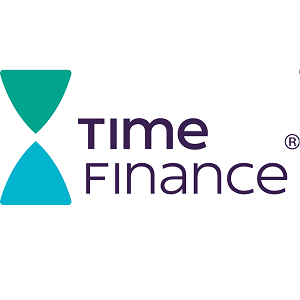Hardman and Co Chief Executive Officer Keith Hiscock caught up with DirectorsTalk for an exclusive interview to discuss his recent article ‘Liquidity – little understood, even before MiFID II’
Q1: Keith, you’ve just published an article about liquidity and MiFID II, why is liquidity important?
A1: Well, liquidity, i.e. the trading of shares, is absolutely fundamental to a stock market, it’s essentially what makes a market. So, if there’s no or poor liquidity then it is difficult to buy or sell shares in a company and investors lose interest, which not only affects trading in the shares, in what we call the secondary market, but it can also make it difficult for a company to raise more money to fund growth.
Institutional investors typically use a liquidity filter to decide whether they should even bother looking at a company. Their concern is that, however good the prospects for a company might be, if there is poor liquidity they’re not going to be able to build up a position and equally, when they want to sell they won’t be able to get out of it very easily.
So, liquidity is absolutely key and in fact, after MiFID II, which is a piece of regulation that comes into force in January next year, it’s going to be even more important because it will determine how many analysts will write research about a company, which itself impacts liquidity. So, the evidence is the more analysts there are covering a company, the more investors are interested and the more the shares trade.
Q2: So, how good is liquidity today?
A2: At Hardman, we’ve developed a database which is constructed from original data provided by the London Stock Exchange (LSE) so we know the volume of trading for every individual company over every period, as well as the average bargain size.
In the paper that we’ve just published, we’ve analysed the market by looking at it in market capitalisation size bands so for example all companies with market capitalisations between £500 million and £600 million, and we’ve also compared the Main Market of the LSE with the AIM market and I think there are three key points to make.
The first is that liquidity, measured by the value of shares traded, has improved in the last couple of years so for example, for the basket of AIM companies we’re looking, average turnover in 2016 was 50 odd percent higher than it was in 2015.
The second point is that, although liquidity’s improved, it’s still pretty thin, below £700 million for AIM companies and £500 million on the Main Market.
Thirdly, if we compare AIM and Main, what you’ll find is that companies with market caps up to £200 million have a higher liquidity on AIM than they do on Main.
Q3: Now, your article is entitled ‘Liquidity – little understood, even before MiFID II’. Why is this little understood?
A3: Well, most of the company managements we’ve met have little idea about the volumes of trading in their own shares and in a sense, why should they, it doesn’t really matter to them at the moment. But when MiFID II comes into force next year, it’s the value of that trading in a company’s shares that’s going to determine whether it makes any commercial sense for an analyst other than the house brokers or possibly a paid-for research house such as Hardman, to bother covering the company.
Q4: So, why does MiFID II matter?
A4: Well, MiFID II is going to really quite dramatically change the way professional investors pay for research, to make it more transparent, and the result is likely to be that, in total, they will pay a lot less than they do now.
So, in another paper we published last year, we demonstrated that a broker needs to generate a minimum of £30,000 a year from every non-house stock it covers, just to break even. Now, if you assume the total secondary commission pool were to fall by 75%, and many commentators out there believe that’s what will happen as a result of MiFID II, then, with the odd exception, you’ll find that no company with a market cap below £500 million or £700 million is going to followed by anyone beyond the house broker or a paid-for house
Q5: What will the impact be?
A5: I think the impact is going to be that, clearly, there’s going to be a lot less research out there but the distribution network of brokers is also going to shrink because MiFID II stops investment managers accepting free research.
Of course, what we’re going to do is get into bit of a downward spiral since research itself generates turnover in shares so we’re also probably going to see the spread bid and offer in the stock market widen, it’s going to be difficult for poorly researched companies to raise new money to fund expansion and the multiples are likely to fall as well.
There is good news and the good news is that in a less perfect market there are many more opportunities for the canny investor to find.


















